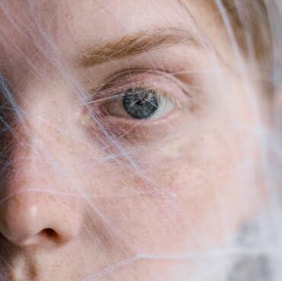|
2/4/2023 0 Comments whY do we suffer? For as far back as the conventional historical record reaches there has been suffering. As far back as this is, we already knew the cause. Why then with all the supposed “advances” of civilization do we still suffer? First of all, we have to let go of trying to get other people to change. Trying to change those around you always re-perpetuates the cycle of suffering with its unintended consequences. Actions have causes and effects and these cycle through again and again, re-perpetuating through our psychology. That means that the cause of suffering is always psychological even though it may stem from action. It doesn’t matter if the original cause precedes the psychology formed around an event, because it is only in the psychology that it can be addressed. When you close the loop of the suffering in yourself, it helps the others contained in the same loop. That means that it is pointless and counterproductive to blame anyone or anything for our suffering other than ourselves. Even if a person who hurt you psychologically took the blame, that person can never bring the light of consciousness into your subconscious (your depository of unprocessed impressions). They can never re-wire your synaptic-instinctual programming. We can only do these things for ourselves.. All we need to start is Hope, Trust, and Inspiration. Blame is and always has been counterproductive. People who change themselves change the world for the better. They come to find that the world isn't exactly as bad as they thought. True compassion is reached when we eliminate what is cynical inside of us. The monsters we must begin with are inside of us. Thousands of years ago the Shakyamuni Buddha, Siddartha Gautama, set out to answer this question, and came to what really is the best possible answer. Once he understood in depth the cause of suffering, he came to “The Four Noble Truths”:
The Eightfold Path of Skill is as follows:
Most people would use the term “Right” as opposed to “Upright”, but that would stress correctness rather than orientation. We can’t always be correct, but we can always have the proper orientation. A gnostic teacher once imparted this equation: p = pain, d = desire to decrease, s = suffering s = p x d Pain is a constant. It is unavoidable, but it is our relationship to it that determines how much we suffer. Suffering is directly proportional to desire. It turns out that the equation works for pleasure as well. The equation has been more accurately distilled to: s = sensation, d = desire to increase or decrease If x = suffering Then, x = s(d) A physical laborer who applies this practical equation can attest that it works with physical pain as well as mental anguish. The objective fact is that desire is the cause of suffering. Desire is suffering. So now we must ask, what is desire? To really understand what desire is, it is helpful to use the tool of contrast by delineating what it is that we actually need in life. It basically comes down to food, shelter, clothing. This doesn’t mean that we need to become minimalists extolling a modern asceticism like the Cynic Antisthenes who was told by Socrates, “I can see your vanity through the hole in your cloak. Your dirt is vanity too, and your vanity is dirty!” We need to differentiate what is addressing a need and what is compensating for something psychological. In Tibetan Buddhism these interior causes of desire/suffering are called psychic or psychological aggregates. The term aggregate is useful because these are knots of a causal nature that interrupt the free flow of life. In Gnosis, these knots are called egos which essentially means “I”s. We suffer because we are a legion of disparate “I”s all vying for control. When we think we are in control, we think we made the choice, but the fact is we let the ego have its way. Because the ego reasoned with us with its single-minded perspective. Recognizing what is ego within oneself is the first step toward ending suffering and awakening consciousness.
0 Comments
Your comment will be posted after it is approved.
Leave a Reply. |
portland maine gnosisSeeking the Path. Being a light. ArchivesCategories |
 RSS Feed
RSS Feed